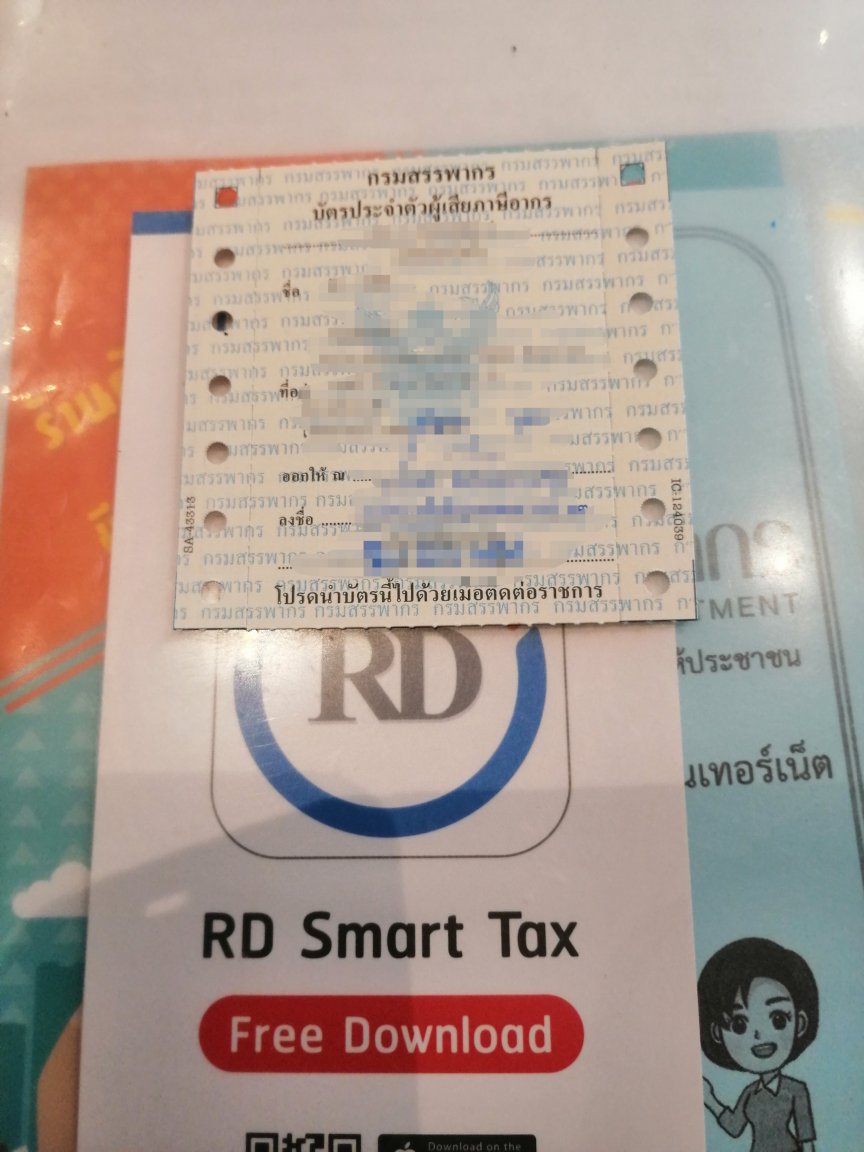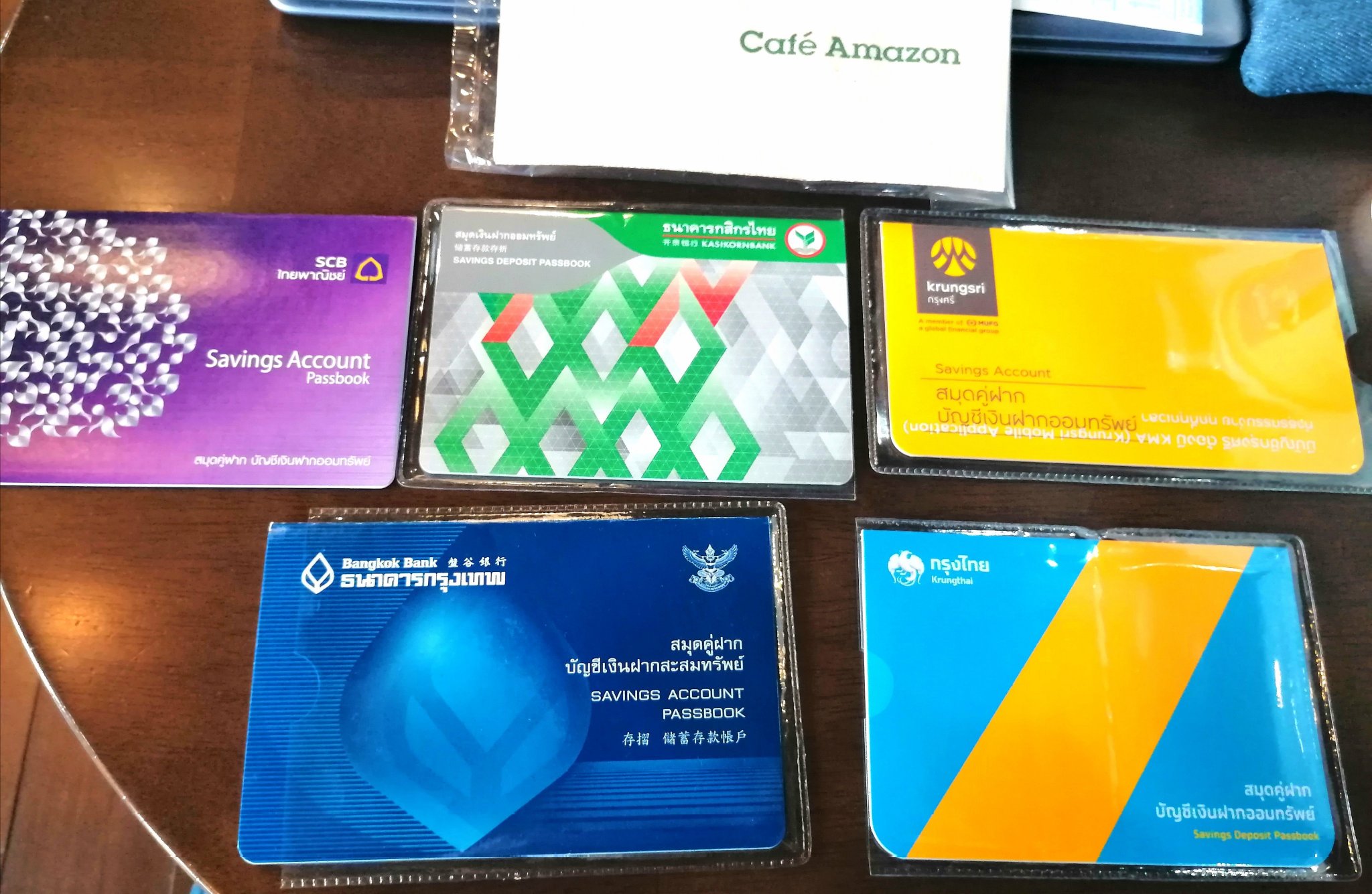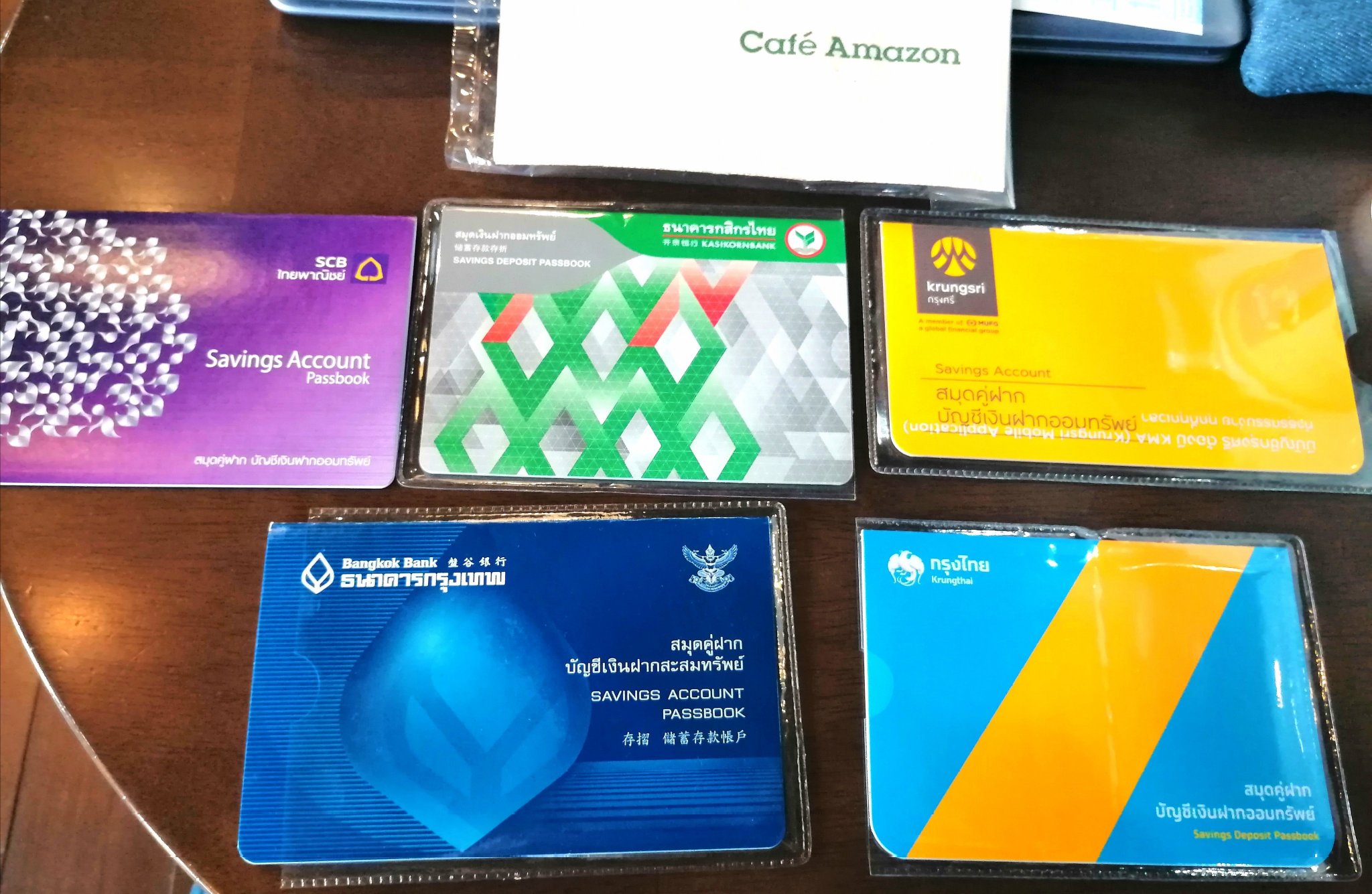-
Posts
14 -
Joined
-
Last visited
Profile Information
-
Location
Phrom Phong in Bangkok
Recent Profile Visitors
166 profile views
THAI DEGITAL NOMAD's Achievements
-
THE SAME SITUATION I am a Japanese and a nomad, and earn a foreign source income from Japan through online business. but, I don't want to pay tax in Japan because Japan is the highest taxes in the world. So, I want to pay tax here, Thailand. Besides, I plan to live in Thailand for more than 180 days. If I live here for 180 days or more, not only Thai source income but also Thai foreign source income will be taxed if I bring money into Thailand. I can't live without bringing the money I earned to Thailand from Japan. In other words, it is taxed in Thailand to bring in income from Japan. In that case, I must get a Tax ID. I could get it very very very easily within 10 minnutes. I went to Asoke Revenue and I said, I want to get a TAX ID because of opening an bank account. I got it. Next, I will pay tax here. Actually, I don't work in Thailand phsically, I don't take away Thai jobs. So, this is a really GRAY ZONE controversy, but Thai immigration doesn't concern about this issue. You also, can pay tax here. I don't know what foreigners in Europe think, but Japanese Nomads with many Thailand elite visas pay taxes in Thailand.We are also told by the secretariat of Thailand Elite in Japan. a person in executive office in Japan said, you can get a TAX ID in Thailand and pay taxes if you want to pay a Japan source income and bring money into Thailand. So, we, Japanese willing to pay tax here.
-
If you live here, Thailand over "180 days," you MUST pay a foreign source income. If you pay tax in your country, I think it's no problem in that case. But if you don't wanna pay tax in your country, you MUST pay it in Thailand. In which country should you pay the tax? You had better choose a country with "cheaper taxes." I am Japanese and Japan is the country with the highest taxes in the world. So, I want to pay tax in Thailand.
-
I am Japanese. Japan and Thailand have a tax treaty. I am a member of Thailand Elite Visa and can live in Thailand for more than 180 days. From now on, if I live more than 180 days, I will have to pay taxes. Thailand has a worldwide tax system. In other words, for example, if I develop software online for Japanese customers through Nomad, it will be Thailand's foreign source income. If I bring it to Thailand, I have to pay tax in Thailand. Now, the people who has a Thailand Elite Visa CANNOT work here, however, this is a GRAY ZONE controversy. Anway, we, Thailand Elite Visa people MUST pay tax in thailand because of the World Wide Taxation System.
-
Strictly speaking, we, Elite Visa holders cannot work in Thailand with a Thailand Elite Visa, however, Digital Nomad can work by remote. This is Grey Zone and It has been discussed for many years. The current answer is that immigration has no interest in us, so we can file a tax return in Thailand. Because we can live for more than 180 days and are resident of Thailand.
-
People in thailand elite visa can get a TAX ID super very easily. I got it in just 10 minutes. At the revenue, there is a form written in Thai, but the staff will fill it for you. All you need to bring is your passport, Thailand Elite Visa, and a certification letter from your Elite Visa. You will be asked the reason for the acquisition, so you can say that it is necessary to open a bank account. That's it. What can you do with Tax ID? ・Digital Nomad such as a Youtuber, online teacher, information product, affiliate can file a final tax return in Thailand for foreign source income. ・You can also file a final tax return in Thailand for capital gains obtained from investments such as FX and Cryptocurrency like Bitcoin.
-
I brought a good news for people of Thailand Elite Visas. I could open 5 bank accounts super very easily. Bangkok Bank, Kasikorn Bank, Siam Commercial Bank, Krungthai Bank and Krungsri Bank. I know people who has a Thailand Elite VIsa can open an account of Bangkok B and Kasikorn B, however, the member also can open at Siam, Krungthai and Krungsri. The below is the Branches ◆Siam Commercial Bank - Head Office ◆Krugthai Bank - Emporium ◆Krungsri Bank - Asok (Exchage Tower) You can bring the below items ・Passport (and Elite Visa) ・Elite Card ・Certification Letter from Elite Visa
-
Can digital nomads work in Thailand without a Thai work permit? The following article quotes the article at the URL below. https://www.thaiembassy.com/thailand/thailand-digital-nomad-visa-and-work-permit Also, my comment is written at the bottom. In order to work in the Kingdom, a foreigner needs to: be on an appropriate visa, obtain a work permit and pay taxes. But, what is work? A digital nomad working on his laptop in a co-working space, is that considered work? A businessman sitting in his hotel room preparing for a seminar? When does the Work Permit office consider this to be work? This is a hard question to answer with a straightforward yes or no. The most important criteria that the Work Permit Office considers when judging if a foreigner works or not, is: does the foreigner use energy, knowledge or effort to produce something? If the answer is yes, then this could mean work. However, the authorities may not pro-actively investigate or pursue every such case. The Work Permit Office will mostly be concerned with an activity of foreigners when: Thai security is affected in a wide sense the activity of the foreigner takes work from local Thai people Using these criteria, aren’t most Digital Nomads in Thailand effectively working here illegally? Yes, in a strict sense. However, Thai law does not have specific sections that cater to relatively new developments such as foreign online workers. Let"s talks about typical cases of foreigners “working” in Thailand to understand where the delicate grey line runs, which cases are clearly illegal or which would raise the concern of the authorities. Typical Cases of Digital Nomads and Foreigners Working in Thailand Other Related Cases A digital nomad works on his online shop in a co-working space. Answer: The digital nomad is allowed to manage his online shop during the duration of his stay in Thailand without a work permit. Even if some of his customers are in Thailand, he is just continuing to do something he was doing before he came to Thailand anyway. However, if his products or market are mainly from Thailand, then YES this is considered to be work and it is a concern. A website designer offers his services to fellow Digital Nomads in Thailand. Answer: YES, this clearly works and he should get a work permit for it. This job could have been done by a Thai website designer, the foreigner is competing with Thai workers and so he needs a work permit. A foreigner sources handicraft products in Thailand and exports them overseas. Answer: YES, this is work, because the products are taken from Thailand. A foreigner sits in his apartment and teaches Chinese students online via Skype. Answer: Officially, it is work, however, it is not the main concern right now, so the authorities allow the foreigner to do this without a work permit. In this case, it will be a matter of the scale of the work and the environment. A travel blogger writes about Thailand. Answer: YES, this is work and it could be a concern. This work could have been done by a Thai person. Also, in order to produce the blog, the blogger uses information, sources, material, and pictures from Thailand to sell it in the international market place. Finally, the content of the blog may affect the security and image of Thailand. The blogger definitely needs a work permit to do this. When the blogger is an international travel blogger writing not only about Thailand but many more places and he stays in Thailand not too long but just as part of a longer trip to several countries, we allow this case without a work permit. But when the blogger is focused mainly on Thailand, he/she needs a work permit. Even if the blogger does not make any money with his blog, he is still using his knowledge and ability with content that is derived from Thailand, so he needs a work permit. However, bloggers may not be the main concern of the authorities, unless there are some problems. A businessman travels to Thailand for a few weeks and conducts some business activities on behalf of his company. Answer: No work permit is needed. The businessman is allowed to meet business partners, discuss business opportunities, source products, even present merchandise to potential buyers and sign contracts on behalf of his company, because the nature of this is just temporary activity in Thailand. Also, Thailand has an agreement with the ILO (International Labour Organisation) that foreigners can work in Thailand in this way. A foreigner owns a couple of condominiums and rents them out. Answer: Officially, foreigners are prohibited to conduct any property related business. This is one of the so-called forbidden jobs for foreigners. Foreigners would have to register this business and they cannot own more than 49%. However, this is NOT considered work when it concerns just 1 or 2 condos but it is when there are 10 condos for rent and he’s specifically doing this as a business. If the foreigner bought the condos only as an investment and does no work at all to rent them out but has hired a local Thai to do this on his behalf, then the foreigner does NOT need a work permit. A farang-Thai couple owns a restaurant and the foreigner is involved in the management of the restaurant Answer: This is a common and delicate case. If the foreigner is only sitting in the restaurant but not serving customers, not training or managing staff, not cooking and not buying supplies, then he does NOT need a work permit for this. But if he is involved in any of these activities, officially he does need a work permit. However, there is another section of Thai law that applies to this situation which is that when this is a small family business he is allowed to take care of his family. So in practice, normally no work permit is enforced. A foreigner yoga teacher teaches periodically or permanently in a yoga studio. Answer: YES, this clearly involves work and a work permit is needed. A foreigner plays music in a bar or restaurant to entertain guests Answer: YES, this is work and work permit is needed. This is a job that could have been done by a local Thai. What about payment? The main criteria that the Work Permit office uses to judge if a foreigner works or not are not about payment. Even if a foreigner does not receive payment in Thailand, he could still be considered to be working. But payment and the payment channel can be taken into account when judging a case. In any case, Thai nomad workers earn source income outside Thailand. For example, teaching your native language online in a European country. However, in that case, it does not rob Thais of their jobs or threaten security in Thailand. Therefore, Thai immigration is not interested in them, however, what is important is the location of taxes. Whether you deposit your foreign income to your home bank or a Thai bank, foreigners who live in Thailand for 180 days or more must pay income tax in Thai. I know of a Nomad foreigner who doesn't have a work permit getting a TAX ID and paying income tax. He has a Thailand Elite visa. You can easily get your TAX ID if you go to the tax office and say "I need it to open a bank account." Even if you don't understand Thai language, filing a tax return is very easy if you ask an agent. However, foreigners may not have to pay income tax. That is the case when the income earned in the current year is not brought to Thailand but brought to the next year. For example, you can imagine the income earned between January 1, 2022 and December 31, 2022 is not brought into Thailand, but after January 1, 2023. In this case, no income tax is levied. But don't you have to pay in your home country? This is the biggest question. If your country determine that you (non-resident) do not have to pay taxes in your country, then of course you will not have to pay income tax in your country. In that case, there is a possibility of double tax exemption between the two countries like Dubai. Therefore, I came up with the best idea. Suppose you have an annual income of $ 100,000. The foreign source income of Thailand is deposited in the Thai bank. However, around $ 10,000 to $ 20,000 is desirable. The rest of the money is deposited in FinTech wallets and FinTech banks. And keep the money there for a year. Put the rest of the money into a Thai bank on January 1st of the following year. Then, it becomes tax-free. The reason for depositing only 10,000 to 20,000 dollars to a Thai bank is to make a filing record in Thailand. It would be better for self-defense to have a certain amount of filing results. If you do not file a tax return between the two countries, you may be told by the tax office in your home country, "Why are you not filing your tax return in your residence country - Thailand?" It will be an excuse for that. What do you think of the double tax exemption between the two countries? Please tell me your actual experience.


.thumb.png.0ac8b5cd2611e14f6c6585ad6fdec7cf.png)













